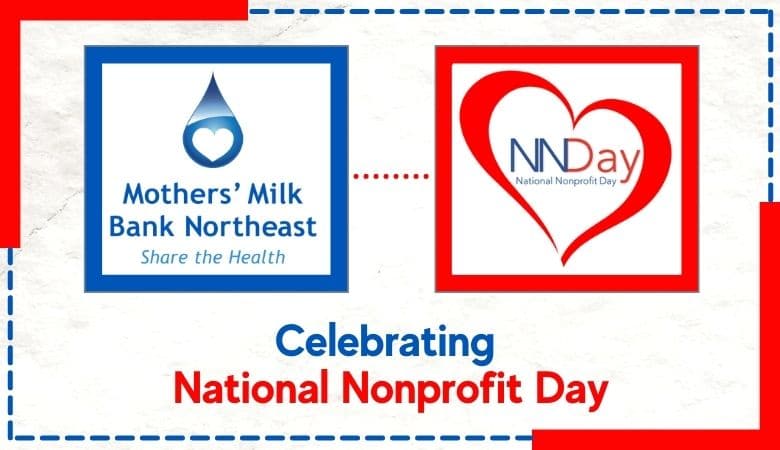Today is National Nonprofit Day—a moment to honor the thousands of nonprofit organizations across the country and the world (elsewhere called NGOs, non-governmental organizations).
On August 17, 1894 the Revenue Act was signed into law. This law mandated taxes on corporations and included tax exemptions for charitable organizations. While the corporate tax rates and laws have been updated and modified many times since 1894, tax exemption for charitable organizations has remained relatively unchanged.
In 2017, Sherita Herring-Oglesby, founder of the Philanthropy Alliance Foundation, established National Nonprofit Day to honor the contributions of the more than 1.5 million nonprofit organizations in the US that support and enrich every aspect of our lives.
We are often asked why, if we are a nonprofit, do we charge fees for donor milk? National Nonprofit Day seems a good time to clarify this question.
What does nonprofit mean?
Nonprofit does not mean that there is no money exchanged and no fees charged. It also does not mean that everyone associated with it is a volunteer. Hospitals, universities, museums, theatres, and private schools are all nonprofits that charge fees for their services, and pay employees. Generally, fees charged cover operating expenses (rent, salaries, utilities, some equipment) but often do not cover unusual expenses such as special equipment, scholarships, and free access to those in need so that the services are equitably accessible. For these expenses, nonprofit organizations turn to fundraising. Tax exemption applies to financial donors to nonprofits as well as to the organization itself. Corporate and private taxpayers may deduct their charitable donations from their taxable income.
So, if nonprofit is not related to fees and money exchanged, what does it mean to be a nonprofit? A for-profit company operates as a business whose goal is to generate profits for its owners, whether they be stockholders, private investors, family members, or friends. A nonprofit does not have owners. Any revenue that exceeds expenses is mandated to go back into serving the mission of the organization: scholarships, new equipment, expanding services and access to services.
Along with our sister milk banks across the US and Canada and the Human Milk Banking Association of North America, we are proud and honored to be among the millions of nonprofit organizations saving, improving, and enriching the lives of individuals, families, and communities in so many areas.









